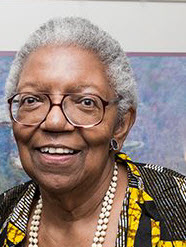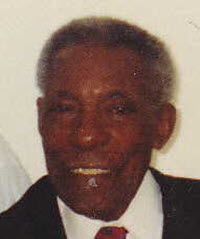Become a Patron!
Vernellia R. Randall, Smoking the African-American Community and the Proposed National Tobacco Settlement, 29 University of Toledo Law Review 677 (Summer, 1998) (158 Footnotes ) (Full Document)

Dedicated to the Memory of Ernest Randall 1916-1995
My great-grandfather, Manlis Randle, lived to be ninety-four years old; my grandfather, Tom Randall, the youngest child of slaves, lived to be ninety-seven years old. My father, an educated black man of the  twentieth century, lived only to seventy-nine. He died of cancer after smoking cigarettes for over sixty years. He tried to quit smoking many times. He tried to quit smoking after developing throat cancer at sixty-two years old; he tried to quit after his brother, Arthur Randall, died of lung cancer; he tried the patches; he tried cold turkey; he tried hypnosis; he tried every smoking cessation known to man (or woman); he wanted to quit; he wanted a long life; but no matter how hard he tried, he always returned to his mentholated cigarettes. The first thing in the morning, (a smoke), the last thing at night (a smoke). My father smoked himself into an early grave. Cigarettes deprived me of a father and deprived my children of a grandfather. Who knows-- with the longevity in my family, they probably deprived my grandchildren of a great-grandparent.
twentieth century, lived only to seventy-nine. He died of cancer after smoking cigarettes for over sixty years. He tried to quit smoking many times. He tried to quit smoking after developing throat cancer at sixty-two years old; he tried to quit after his brother, Arthur Randall, died of lung cancer; he tried the patches; he tried cold turkey; he tried hypnosis; he tried every smoking cessation known to man (or woman); he wanted to quit; he wanted a long life; but no matter how hard he tried, he always returned to his mentholated cigarettes. The first thing in the morning, (a smoke), the last thing at night (a smoke). My father smoked himself into an early grave. Cigarettes deprived me of a father and deprived my children of a grandfather. Who knows-- with the longevity in my family, they probably deprived my grandchildren of a great-grandparent.
THE tobacco industry specifically targeted the African-American community with their product. It disproportionately flooded the African-American community with advertisement and cigarettes. It promoted a more addicting drug in the African-American community. As a result, more African-American adults smoke, are more addicted, and have greater illness due to smoking. Any settlement with tobacco companies must address the needs of the adult African-American community. The proposed settlement and the enacting legislation are inadequate; it leaves the adult African-American community at the mercy of the tobacco companies with little redress for specific harms (addiction and dependency) that have already occurred and will continue to occur. In order to reach an equitable result, the restructuring of the tobacco settlement must include specifically identifying as a priority
(1) the funding of culturally specific cessation programs targeted toward African-Americans; (2) the funding of biomedical research specifically addressing the issues of African-Americans' addiction and dependence; (3) the funding of African-American events historically supported by tobacco industries; (4) the limiting of immunity to information disclosed prior to the enactment of any legislation; and most importantly; (5) the establishment of a Tobacco Injury Compensation Fund for addicted smokers.


